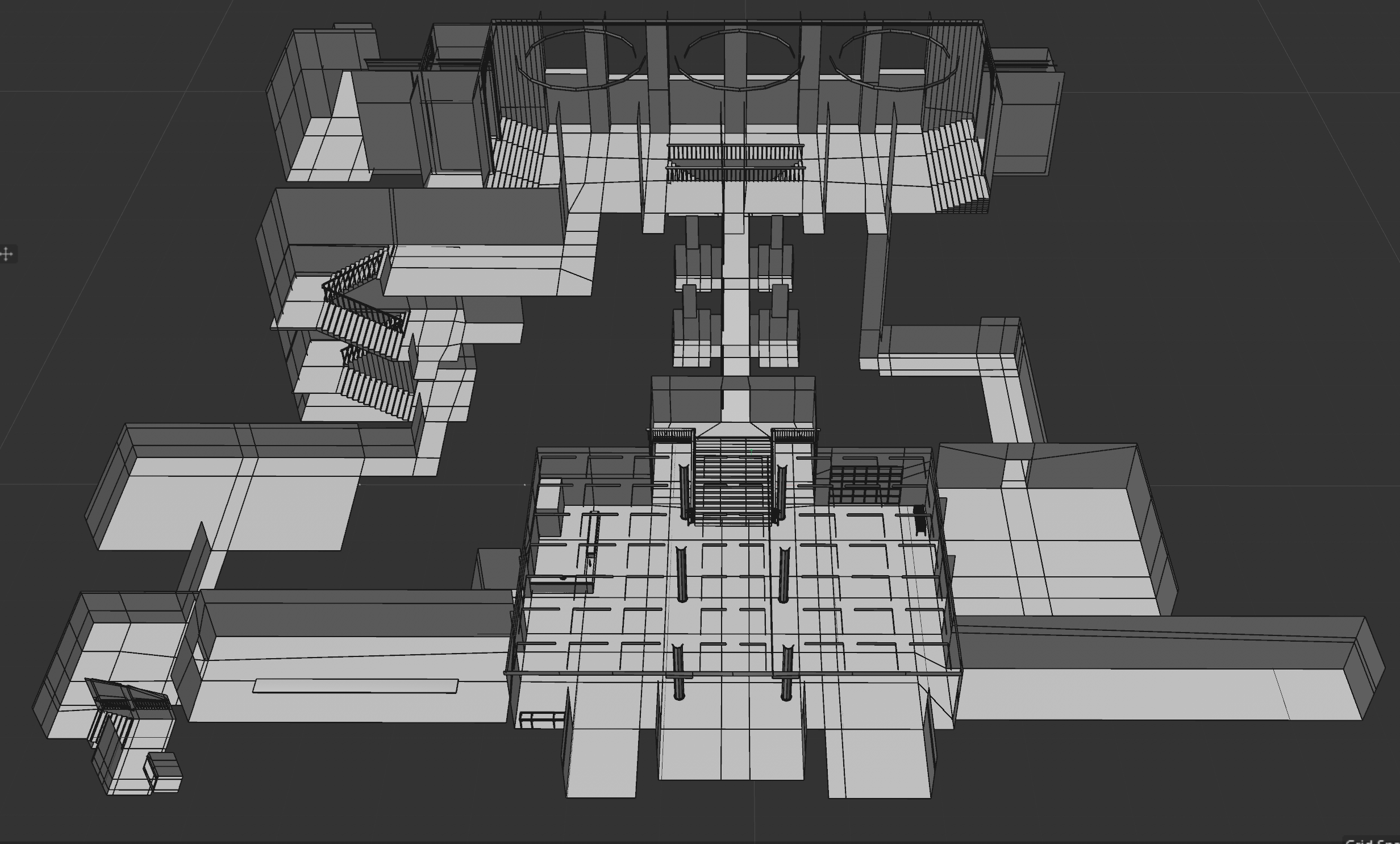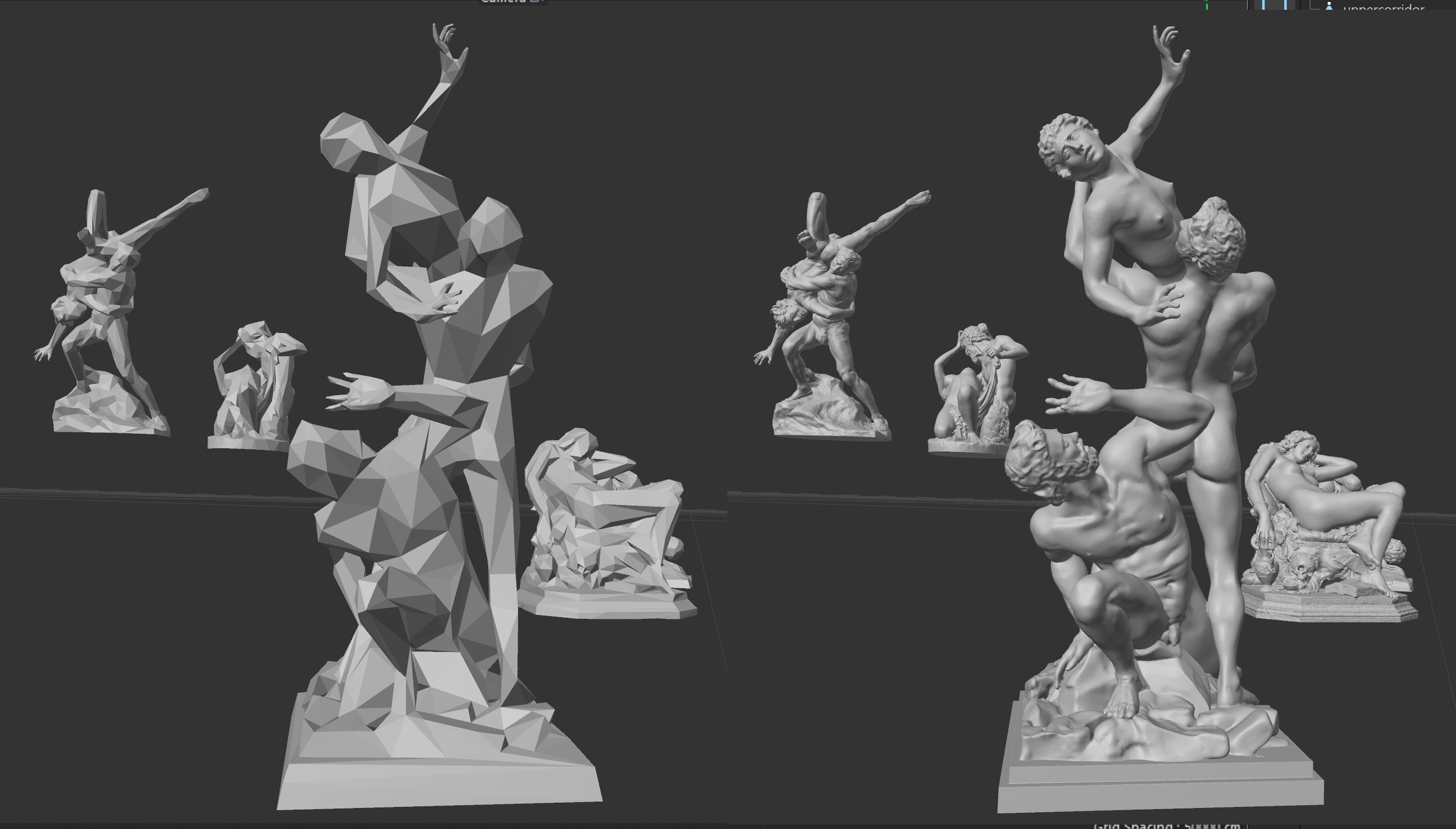Zomboloid VR. A game made in Unity.
From RAW SCULPTS
Explaining text block here Explaining text block here Explaining text block here Explaining text block here Explaining text block here Explaining text block here Explaining text block here Explaining text block here Explaining text block here Explaining text block here Explaining text block
To HYPER OPTIMIZED LOWPOLY
here Explaining text block here Explaining text block here Explaining text block here Explaining text block here Explaining text block here Explaining text block here
To Rational UVMAPPING and TEXTURING
here Explaining text block here Explaining text block here Explaining text block here Explaining text block here Explaining text block here Explaining text block here
Raw sculpts, made in 3dCoat. Some parts are automatically retopologized using 3dcoat native Autopo, Quad remesher or other tools, other parts are manually retopologized.
Trying to mask the “low-polyness” of the final models through layered and complex texture work.
LEVEL DESIGN
Refernce picture taken at Göteborgs Konstmuseum
In-game footage
Putting together a bunch of assets into one mesh and having them share a single UV is a great way to keep the game engine draw calls low. In this case I put together the staircase, floor, pillars, a sculpture and a couple of other things into one single mesh and let it use a single huge texture to maintain quality while getting rid of tons of drawcalls.
Raw low poly 3d-model in Cinema 4d
After lighting and textures in Unity
Low poly to detail baking in Substance
Left: Low poly reduction, <1000 polygons per sculpture. Hands and faces are split out manually to preserve critical detail where it is needed the most. Right: high poly source, >5 000 000 polygons per sculpture
Sculptures optimized. From over 6 million polygons per character to under 1000 polygons. Splitting out detail demanding areas manually, like hands or heads and retopologizing them separately before putting them together agin. A lot of the detail is then brought back by baking the high poly version into the normals and AO in Substance painter
Before and after baking detail maps in Substance Painter. A lot of emphasis was put on trying to preserve the silhouttes of the sculptures, as a lot of the rest of the detail would be salvagable through baking the high poly sculpts into the normal maps of the low poly sculptures.










